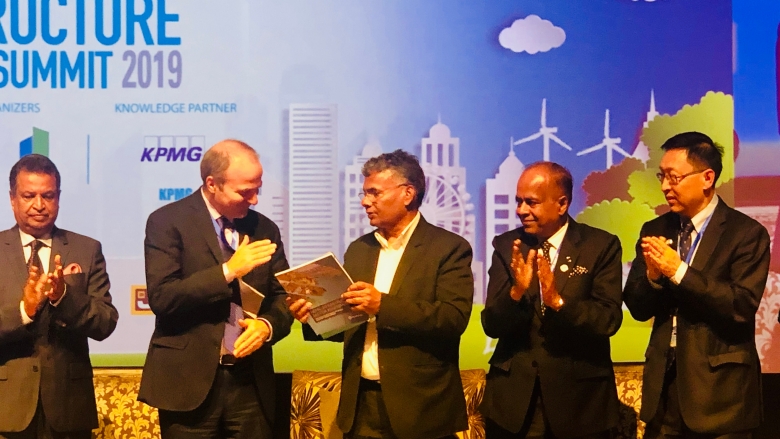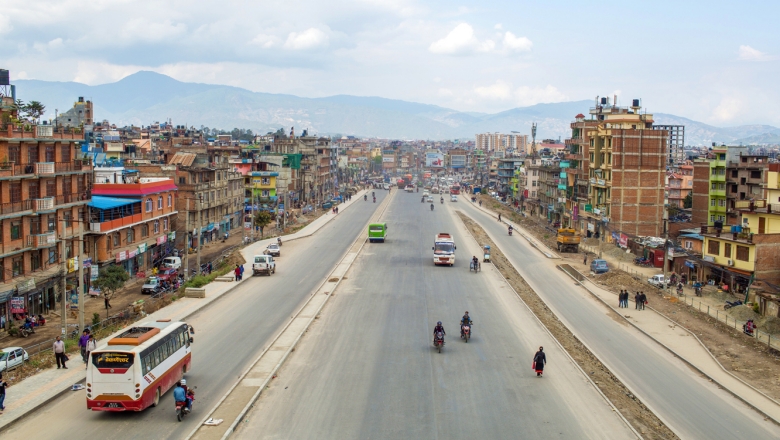Kathmandu, Nepal – For Nepal, it is the right time to mobilize private sector solutions to close the infrastructure gap on the path to achieving the country’s growth aspirations, says the World Bank Group’s Nepal Infrastructure Sector Assessment report launched today on the sidelines of the Nepal Infrastructure Summit, 2019.
The report assesses the energy, transport and urban infrastructure sectors together with cross-cutting issues and recommends interventions that combine short-term and longer-term structural and policy changes with tailored project implementation approaches to unlock private sector financing and cooperation with the public sector.
“For real benefits to accrue to Nepal’s citizens, the quality and sustainability of infrastructure services needs to improve with substantial and efficient investment,” stated Jingdong Hua, World Bank Vice President and Treasurer. “Unlocking private sector investment is key to sustainable infrastructure development to promote growth and equity and providing access to services, jobs and markets.”

Nepal’s investment needs average 10-15% of GDP annually over the next decade as the country aspires to graduate from least developed country status by 2022 and towards middle-income country by 2030. Nepal has historically relied on a mix of public and private financing in the electricity sector and a two to four-fold increase in investment is needed to meet the country’s projected electricity demand. Likewise, public and private resources are key to developing the country’s transport infrastructure and address the issues of chronic underinvestment and improvements in connectivity and safety. Nepal is also among the fastest growing urban populations and while local governments under the federal setup are primarily responsible for public service delivery, the urban sector faces a paradoxical case of insufficient capital expenditure to meet demand on one hand and low capital spending on the other.
“The country’s transition to federalism presents a unique opportunity to define roles, establish clarity, and build a renewed, strong partnership between the public and private sector,” stated Idah Z. Pswarayi-Riddihough, World Bank Country Director for Nepal, Sri Lanka and Maldives. “In our aim to maximize finance for development, a strong focus is required in the areas of governance and capacity and regulatory frameworks together with a lens on gender and social inclusion and social and environmental management.”
While public investment is integral, particularly in sub-sectors that require large investment, the report recommends creating a conducive environment for private sector participation through sector-level groundwork, sustainable project structures, systematic and strategic public investment management and project selection, and investment-friendly policies and regulations.
“Given the huge funding gap and about 30 million population eager to see speedy improvements in their quality of life, public-private partnerships (PPP) can be a useful tool for Nepal to leverage expertise and efficiency of the private sector while raising capital to meet the development needs of the country,” said Wendy Werner, IFC Country Manager for Nepal, Bhutan and Bangladesh. “IFC can bring to bear its global expertise in structuring PPP deals in addition to working with the domestic and foreign private sector to increase investments in Nepal.”
The infrastructure sector assessment report follows a consultative approach to use in-depth analysis to develop a roadmap of interventions to debottleneck private sector and commercial investments. The report provides a set of recommendations for each sector in the areas of building the institutional and regulatory environment, strengthening financial viability, increasing availability of long-term finance, sectoral strengthening, developing an enabling environment for foreign investment, governance and public investment management, gender and social inclusion, and environment and social management.

